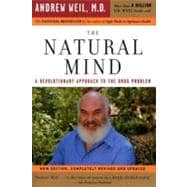
Note: Supplemental materials are not guaranteed with Rental or Used book purchases.
Purchase Benefits
What is included with this book?
| Preface to the 2004 Edition | vii | ||
| Preface to the 1998 Edition | ix | ||
| Preface to the 1985 Edition | xi | ||
| 1. What This Book Is About | 1 | (13) | |
| 2. Why People Take Drugs | 14 | (19) | |
| 3. Is Anything Wrong with It? | 33 | (30) | |
| 4. What No One Wants to Know About Marijuana | 63 | (22) | |
| 5. Clues from the Amazon | 85 | (16) | |
| 6. The Solar Mind: Straight Thinking | 101 | (28) | |
| 7. A Trip to the Moon: Deep Thinking | 129 | (34) | |
| 8. The Only Solution to the Drug Problem | 163 | (11) | |
| 9. Where to Go from Here | 174 | (5) | |
| Acknowledgments | 179 | (2) | |
| Afterword | 181 | (6) | |
| Works Cited | 187 | (4) | |
| Suggested Reading | 191 | (2) | |
| Index | 193 |
The New copy of this book will include any supplemental materials advertised. Please check the title of the book to determine if it should include any access cards, study guides, lab manuals, CDs, etc.
The Used, Rental and eBook copies of this book are not guaranteed to include any supplemental materials. Typically, only the book itself is included. This is true even if the title states it includes any access cards, study guides, lab manuals, CDs, etc.
Excerpted from The Natural Mind: A Revolutionary Approach to the Drug Problem by Andrew T. Weil
All rights reserved by the original copyright owners. Excerpts are provided for display purposes only and may not be reproduced, reprinted or distributed without the written permission of the publisher.